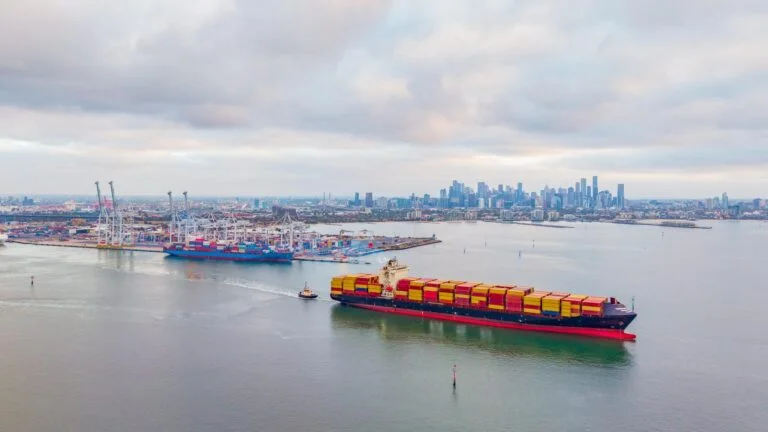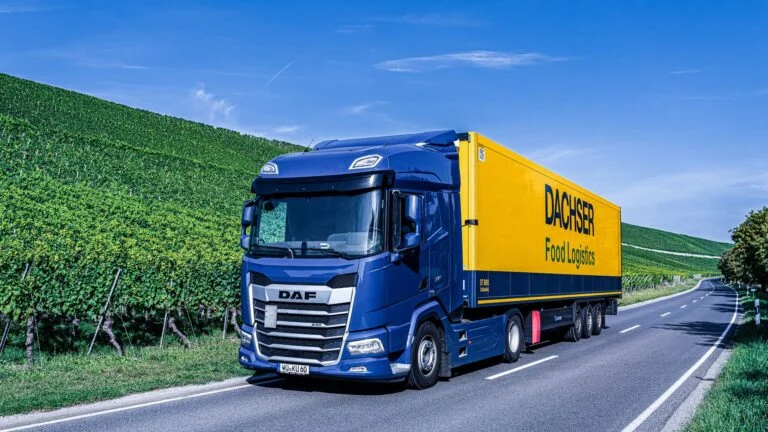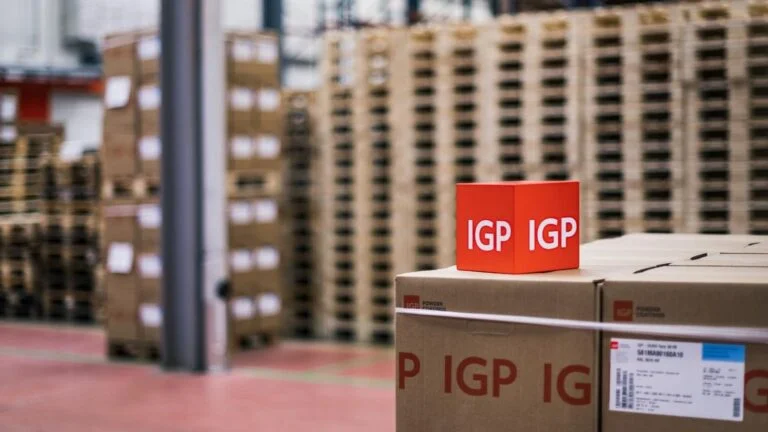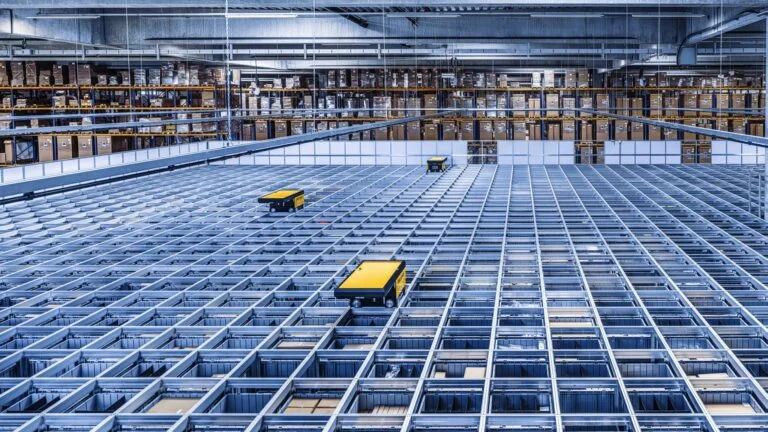Five megatrends in tomorrow’s logistics
By Andre Kranke I 6 minute read
08/08/2025
What major trends are pointing the way forward for logistics providers in industry, retail, and services over the next five to ten years? And what challenges—and opportunities—do they present? We look at the megatrends the logistics sector must adapt to.
Quick Read
Looking into the future of an industry and making the right predictions is the ultimate achievement for any research and development department. From DACHSER’s perspective, there are five key trends that logistics specialists and supply chain managers need to prepare for, particularly in Central Europe but also worldwide:
Generational shift
Due to lower birth rates and a limited capacity to absorb migrants, the age distribution of society is tending to become older, particularly in many industrialized countries. This is leading to an ever more acute shortage of qualified workers in all sectors of the economy. Employees will be increasingly successful in asserting their ideas on working conditions and the working environment. Existing social norms concerning work and leisure are being called into question. More and more sectors of the economy can no longer keep up in the battle for skilled workers and are having to reduce or automate services. However, production is also being further automated or relocated to other economies, which in turn is driving changes in the economic performance of individual countries. At the same time, as society ages, growing numbers of people are demanding goods and services that cater specifically to older people. These and other implications of the “generational shift” have an extreme impact on logistics with its flows of goods and its still largely human-centered processes.
However, production is also being further automated or relocated to other economies, which in turn is driving changes in the economic performance of individual countries.
Autonomous processes
Autonomous processes – Algorithms based on artificial intelligence are increasingly making it possible to manage a wide variety of workflows and processes autonomously, which is to say intelligently and with a high degree of reliability even with less human involvement. What are known as AI assistants and AI agents can then design mathematical problem-solving approaches and continuously improve them based on their training data. This enables them to make (preliminary) decisions with a high degree of accuracy, for instance when it comes to recurring administrative procedures, C-parts procurement, data analysis, or process planning. In logistics, these AI assistants and AI agents can also partner with robotics and vehicles to move goods and merchandise. This makes autonomous systems the answer to the increasing lack of qualified personnel. Those who develop and control highly intelligent AI assistants and AI agents will automatically gain more influence over supply chains.
As part of the “Future Lab” series, results from the Corporate Research & Development department are presented, which were developed in collaboration with specialist departments and branches as well as the DACHSER Enterprise Lab at the Fraunhofer IML and other research and technology partners.
Those who develop and control highly intelligent AI assistants and AI agents will automatically gain more influence over supply chains.
Seamless digital business
The complete and seamless digitalization of all processes is the indispensable basis for managing workflows in business and logistics more intelligently and ultimately more autonomously. Such “no touch” processes are leading to ever faster, more efficient, and error-free flows of information and payments. The identities of people, institutions, and goods can be established securely and automatically, and then used for subsequent processes. Paper documents, the manual recording of data, the legally binding establishment of an identity, or a declaration of intent by a person are being replaced by comprehensive digital platforms and the use of digitalization methods such as open source or citizen development. Database structures that allow faster and easier access to stored information are becoming fundamental to business success. Only those who master uninterrupted, seamless digital business processes will be in a position to continue to participate in the market in the future.
Green economy
Especially when it comes to climate action, more and more regulations and legal requirements are coming into force to motivate or even force companies to convert their business models to more environmentally friendly and sustainable concepts. In addition, many larger companies, particularly those based in the European Union, continue to demand that their suppliers and service providers pursue environmental protection and climate action and provide evidence of their efforts. The logistics industry is also still pursuing net zero emission targets for transportation. Logistics companies that offer answers to these and other sustainability requirements will defend or even gain market share—especially if they can offer this at manageable or no additional cost and provide verifiable proof.
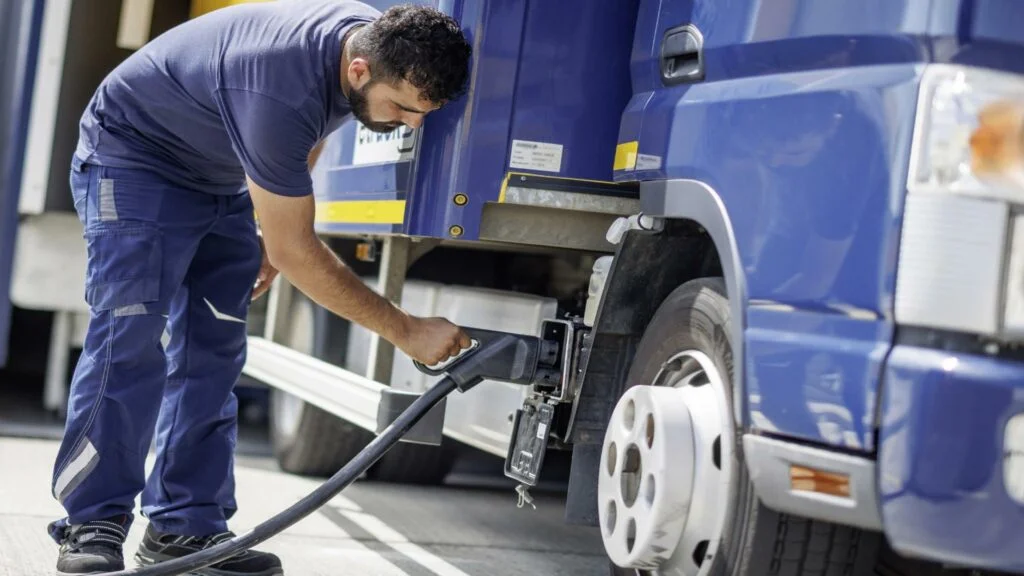
Supply chain resilience
Logistics companies must be able to adapt both to unexpected short-term disruptions and to longer-term structural changes. These include the steady increase in severe weather events due to global warming, with their destructive effects on transportation infrastructure. Or the sea, air, and land routes that can no longer be used due to armed conflicts and terrorism, as well as expected or unexpected shifts in the flow of goods, especially due to sanctions, tariffs, or the strategic realignment of trade relations. Only companies that are able to design and run resilient logistics concepts will be able to operate successfully.
Only companies that are able to design and run resilient logistics concepts will be able to operate successfully.
As an innovative logistics partner, DACHSER is working on its own and with partners to prepare for these and other developments. Because the statement attributed to former German Chancellor Willy Brandt still applies: “The best way to predict the future is to shape it.”

